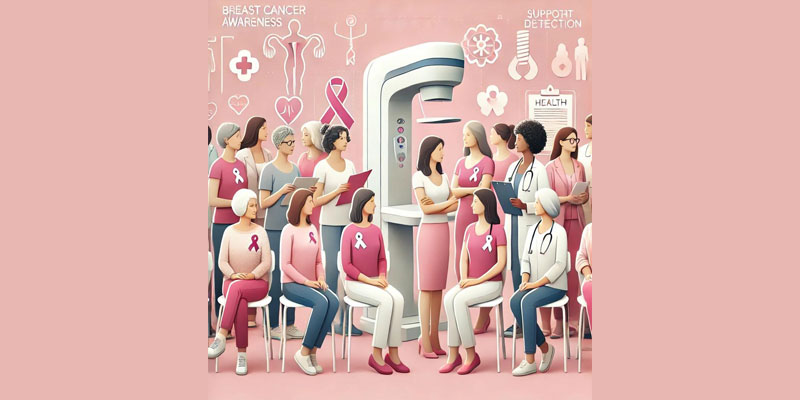Breast cancer is one of the most common cancers affecting women worldwide, and it does not discriminate based on marital status. Many people wonder whether being unmarried could influence one’s risk of developing breast cancer. In short, yes, unmarried women can and do get breast cancer, as breast cancer risk is influenced primarily by genetic, lifestyle, and environmental factors rather than marital status. However, marital status can influence early detection, treatment access, and emotional support, which can indirectly impact outcomes.
Understanding Breast Cancer Risk Factors
Breast cancer risk factors vary widely and can include:
- Age: The risk of breast cancer increases with age. Most cases are diagnosed in women over the age of 50.
- Family History and Genetics: Mutations in genes such as BRCA1 and BRCA2 can increase the risk, and having a family history of breast cancer is a notable risk factor.
- Reproductive and Hormonal Factors: Exposure to estrogen over time can increase breast cancer risk. For example, starting menstruation early or entering menopause later than average can lead to more extended exposure to estrogen.
- Lifestyle Factors: Smoking, alcohol consumption, physical inactivity, and obesity can also influence breast cancer risk.
- Environmental Factors: Exposure to radiation or certain chemicals may elevate the risk of breast cancer.
Marital status alone does not contribute directly to the development of breast cancer; however, some associated factors, like childbearing, age at first pregnancy, and access to healthcare, might be influenced by marital status.
Marital Status, Childbearing, and Breast Cancer Risk
Historically, researchers have identified some reproductive factors that may lower breast cancer risk, such as giving birth before the age of 30 and breastfeeding. This is because the hormonal changes associated with pregnancy and breastfeeding can have a protective effect on breast tissue. Statistically, married women are more likely to have children than unmarried women, but having children is not exclusive to married women, nor does it guarantee immunity from breast cancer.
In fact, many women who have children or are married still develop breast cancer. Furthermore, many unmarried or childless women never develop the disease, as it is a complex interplay of various factors rather than any one specific cause.
Social and Emotional Support
Research shows that having a support network can play a significant role in cancer outcomes. Married women, or those in committed relationships, may have partners who encourage regular health screenings or provide support if a diagnosis occurs. Unmarried women might have strong support networks among friends and family, though some studies suggest they may be less likely to undergo regular health screenings. Early detection is crucial for effective treatment, so fostering awareness among all women—regardless of marital status—is essential.
Health Disparities and Access to Care
Access to healthcare, including screenings like mammograms, is another factor that can be influenced by marital status. Married women might benefit from shared health insurance or encouragement from spouses, making them more likely to seek routine exams. Conversely, unmarried women, especially those with limited healthcare resources, might delay screenings, which can lead to later-stage diagnoses.
However, this gap has been closing as awareness and resources for preventive healthcare have improved, and more unmarried women are proactive about their health.
Reducing Breast Cancer Risk: Actions for All Women
To reduce the risk of breast cancer, women, regardless of marital status, can focus on modifiable lifestyle factors:
– Regular Exercise: Physical activity has been shown to lower breast cancer risk.
– Healthy Diet: A diet high in fruits, vegetables, and lean proteins can support overall health and potentially reduce cancer risk.
– Routine Screenings: Regular mammograms and self-exams are essential for early detection. Women over 40, or those at high risk, should discuss a screening schedule with their healthcare provider.
– Avoid Smoking and Limit Alcohol: Both smoking and excessive alcohol consumption are linked to increased cancer risk.
– Maintain a Healthy Weight: Obesity is linked to higher breast cancer risk, especially after menopause.
Conclusion
Yes, unmarried women can get breast cancer just as married women can. Marital status does not inherently affect the likelihood of developing the disease. However, social, emotional, and healthcare support—often more accessible for married women—can affect early detection and access to treatment, which can influence outcomes.
The focus should be on empowering all women with knowledge, access to screenings, and lifestyle habits that support breast health. Breast cancer does not discriminate, and neither should our approach to prevention, detection, and treatment.

